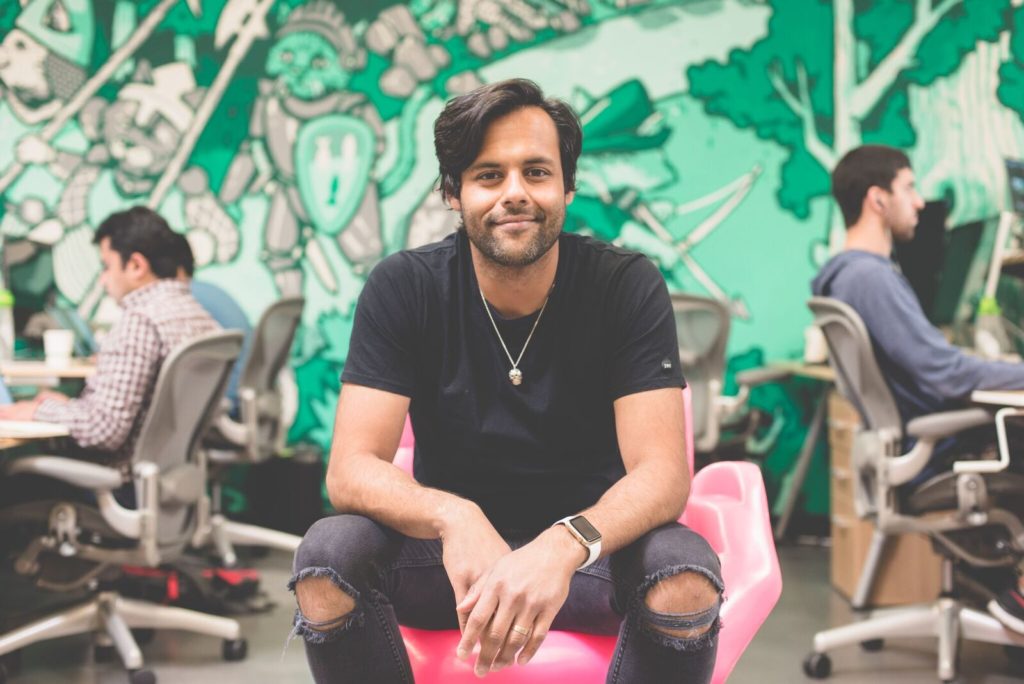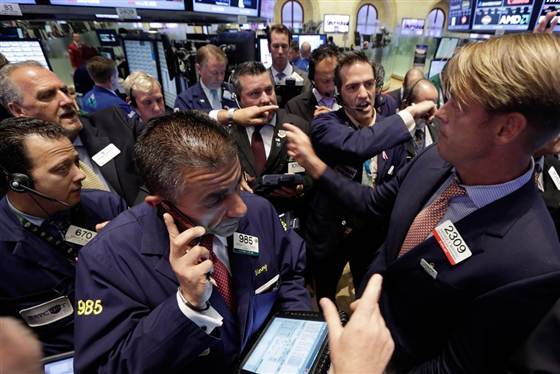
Robinhood, the free stock trading app, has raised $363 million in a new investment round valuing the company at $5.6 billion.
The Series D round, announced Thursday, makes Robinhood the second most valuable private fintech startup in the U.S. after Stripe, the online payments company.
Bucking the model of traditional brokerages—which rely on trade commissions to make money—the three-year-old Robinhood has shown an ability to rapidly overtake incumbents in one of the oldest Wall Street industries. In the past year, the number of Robinhood brokerage accounts has doubled to more than 4 million, surpassing E*Trade, which had 3.7 million according to its most recently monthly disclosure.
At the same time, Robinhood’s valuation—which stood at $1.3 billion after its last fundraising round a year ago—has more than quadrupled. DST Global led Robinhood’s latest round, while new investors including Sequoia Capital, Kleiner Perkins, Iconiq Capital and Capital G (the venture capital arm of Google parent Alphabet (GOOGL, +1.47%)) also participated.
Driving that growth has been a flurry of new product launches just since last November, including a web version of the Robinhood app, commission-free options trading, and, most notably, free Bitcoin and cryptocurrency trading. Robinhood accomplished that with fewer than 200 total employees, though it’s planning to hire more technical talent and experienced executives with its new funding.
“I think the real ‘X factor’ that made investors even more excited about being a part of Robinhood was seeing our ability to, with a very, very limited workforce, to ship three brand new products in these last six months, while maintaining and growing one of the largest brokerages in the U.S.,” Baiju Bhatt, Robinhood’s co-founder and co-CEO, tells Fortune.
Robinhood Crypto, which launched in February and is currently available in 10 U.S. states, is expanding to new states as fast as it can secure the necessary licenses for each, and Bhatt expects the offering to roll out country-wide by the end of 2018. While the most popular place to trade Bitcoin in the U.S. is currently Coinbase, which boasts more than 20 million customer accounts, Bhatt is confident that Robinhood will soon become a close rival—or take the lead altogether.
“We expect by the end of the year to be either the largest or one of the largest crypto platforms out there,” says Bhatt. “But we also really feel we’ll have the absolute best experience for investing in crypto as well—from having a large variety of coins available to a more favorable cost structure—mainly no commissions—to just quality of product.”
Robinhood, which currently only offers trading of Bitcoin and Ethereum, also allows its users to track market data for a total of 16 different cryptocurrencies, including Ripple and Zcash. The company plans to make other cryptocurrencies available to trade eventually, though Bhatt did not specify which ones. Coinbase, meanwhile, currently lists four cryptocurrencies for trading (Bitcoin, Bitcoin Cash, Ethereum and Litecoin).
Bhatt believes Robinhood can “unquestionably” achieve its goal to become the leader in cryptocurrency trading despite reports over the past week that major Wall Street institutions, including Goldman Sachs (GS, +0.69%) and the parent company of the New York Stock Exchange plan to enter the Bitcoin trading market.
“Robinhood’s product cadence has been very impressive,” says Andrew Reed, a partner at Sequoia Capital which invested in Robinhood for the first time this round. “We invested because we think that Robinhood has the potential to bring its low-cost and user-first approach to revolutionize large portions of financial services.”
And while regulators including the office of the New York attorney general have recently probed the legality of cryptocurrency exchanges, Bhatt says Robinhood is likely to have a head-start on any new requirements, due to the fact that it went through a similar process for its original stock-trading product. Robinhood, for example, is already a registered broker-dealer with the Securities and Exchange Commission, which Coinbase is not (although it is reportedly seeking to become one).
“We’re more than happy to do it,” Bhatt says of meeting new potential cryptocurrency regulations. “Totally fine.”
Robinhood, however, because of its no-commission model, differs from its competitors in that it does not make any money on cryptocurrency trading. The company, which does not disclose revenue figures, instead makes money through its subscription service Robinhood Gold (with premium features such as margin trading and extended market hours), and by collecting interest on deposits. Those revenue streams “let us offer things like crypto for free,” Bhatt adds.
Other major cryptocurrency trading platforms such as Circle and Coinbase, on the other hand, are both reported to make about $1 billion in annual revenue.
Yet even in light of the profit sacrificed by not charging commissions, Bhatt says Robinhood is sticking with its current strategy; $150 billion in transactions have taken place on Robinhood to date—amounting to more than $1 billion saved on fees investors would have had to pay elsewhere, he notes.
“We plan on continuing to offer these services for free. There’s no real scenario where we would change that at all,” Bhatt says. “I think we’re pretty relentlessly focused on our mission of making the markets and the financial services system more accessible to the broader population, and that’s a pretty good North star for us.”
























